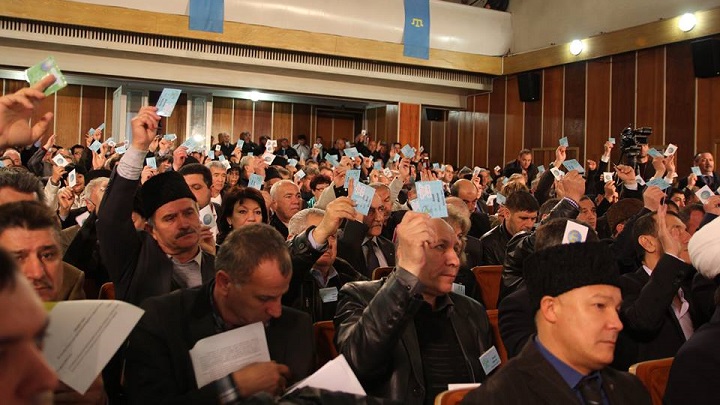In 2009, the European Parliament declared August 23 as a day of the 70th anniversary of the signing of the Non-Aggression Pact between Germany and the Soviet Union, as well as the Secret Additional Protocol that divided the continent into spheres of influence on the eve of World War II – the European Day of Remembrance for the Victims of Stalinism and Nazism.
These two ideologies have been held to be equally responsible for the violent deaths of millions of people.
The indigenous Crimean people were among the victims of both tyrannical regimes. Even before the start of the war, the Stalinist dictatorship had a disastrous impact on the most active, educated part of Crimean Tatars, repressing almost the entire
For Crimean Tatars who fell into the category of a few peoples, as a result of the annexation of the end of the 18th century and the subsequent colonialist policy, such losses turned into a national catastrophe.
During the Soviet-German war, Crimean Tatars were twice exposed to the risk of total annihilation.
The armed forces of Germany, which seized the peninsula and established an occupation regime in the middle 1941, suppressing the underground and partisan resistance, perpetrated cruel reprisals against the civilian population, including the Crimean Tatar people.
As a culmination of these actions there was the burning in November and December 1943 of about 130 mountain and foothill Crimean villages. The population of most of these villages was predominantly and in 90 of them completely Crimean Tatar. For example, dozens of residents of Ulu-Sala were burned alive and they were Crimean Tatars. The invaders motivated such a large-scale crime from committing on the local territory by the fact that the inhabitants assisted the partisans.
After Crimea was liberated, the same people were accused, now by the Stalinist leadership, in cooperation with the Nazis, those who burned houses and villages of the Crimeans, organized round-ups, shot and drove them to forced labor.
The forcible eviction of the Crimean Tatar people on May 18, as well as other ones – entirely 15, partly more than 40 different nations of the Soviet Union, is one of the bloodiest acts of Stalin and his entourage, which cannot be qualified otherwise than genocide and a crime against humanity.
Unlike other repressed peoples, even after the death of the tyrant, Crimean Tatars were deprived of the right to return to their homeland. Activists of the national movement for the return to Crimea were subjected to constant persecution: mass detentions, courts, fines, considerable prison-camp terms.
The collapse of the USSR stimulated a massive self-return of the people to Crimea. But the issues of comprehensive rehabilitation, including property and, especially the right to national sovereignty, have not been resolved. The Crimean Tatars continue to experience the dire consequences of the crimes of Stalinism.
Territorial changes of recent years, carried out contrary to international law, only exacerbated these consequences. Ethnic disunity, religious persecution, significant restrictions on civil liberties (freedom of expression, assembly, and association, etc.), a ban on the activities of bodies of national self-government were added to the problems of language, education, the official interpretation of the historical past of the Crimean Tatars, which, naturally, it does not move away from the ideology and practice of Stalinism, but brings it closer to them.
We, the group of delegates of the VI Kurultay of the Crimean Tatar people and activists of the national movement, supporting the consistent condemnation by PACE and democratic organizations of Europe of the totalitarian regimes of the 20th century – Nazism and Stalinism, declare that the current situation of the Crimean Tatar people cannot be considered normal.
We call on the democratic forces of Europe to strengthen their protest voice when it comes to the desire to preserve the consequences of the crimes of Stalinism against the Crimean Tatar people and obstacles to the restoration of their natural collective political rights.
Aqmesjit, August 23, 2020
Nariman Dzhelyal – delegate of the Kurultai of the Crimean Tatar people of the VI convocation
Bekir Mamut – delegate of the Kurultai of the Crimean Tatar people of the VI convocation
Shevket Kaibulla – delegate of the Kurultai of the Crimean Tatar people of the VI convocation
Emine Avamileva – delegate of the Kurultai of the Crimean Tatar people of the VI convocation
Ibraim Chegertma – delegate of the Kurultai of the Crimean Tatar people of the VI convocation
Lemmar Yunusov – delegate of the Kurultai of the Crimean Tatar people of the VI convocation
Maushev Mustafa – delegate of the Kurultai of the Crimean Tatar people of the VI convocation
Edem Dudakov – delegate of the Kurultai of the Crimean Tatar people of the VI convocation
The list is open, anyone can sign the application





